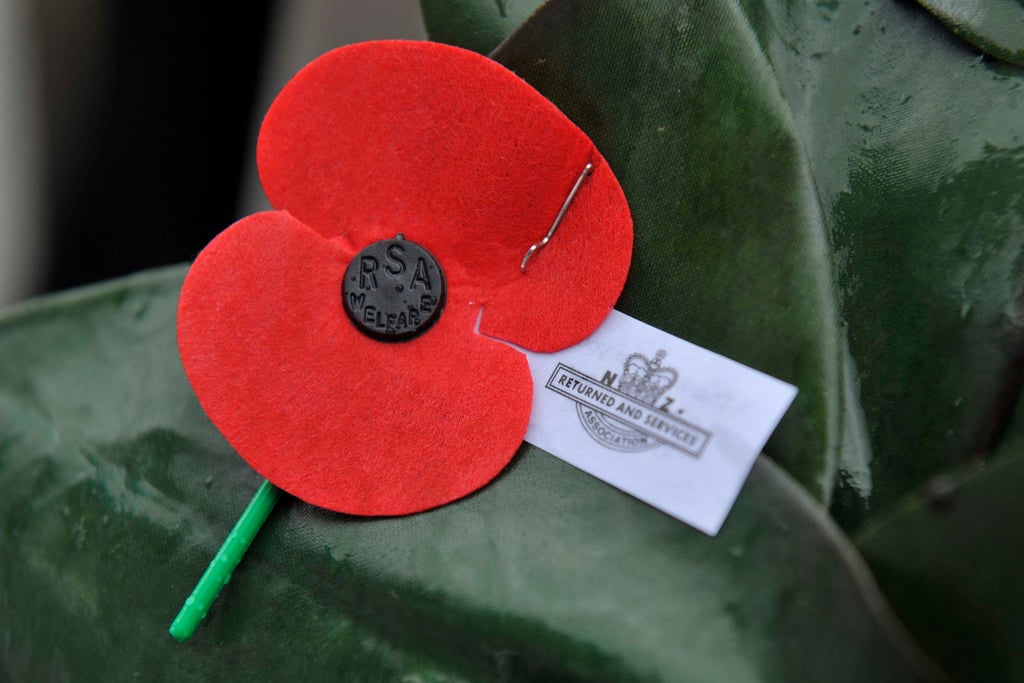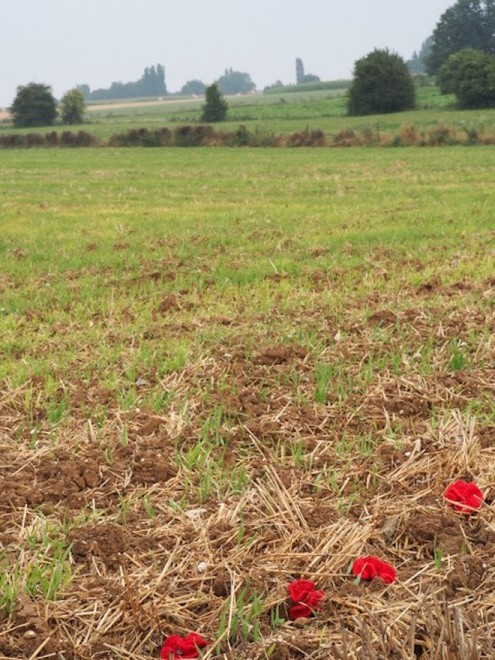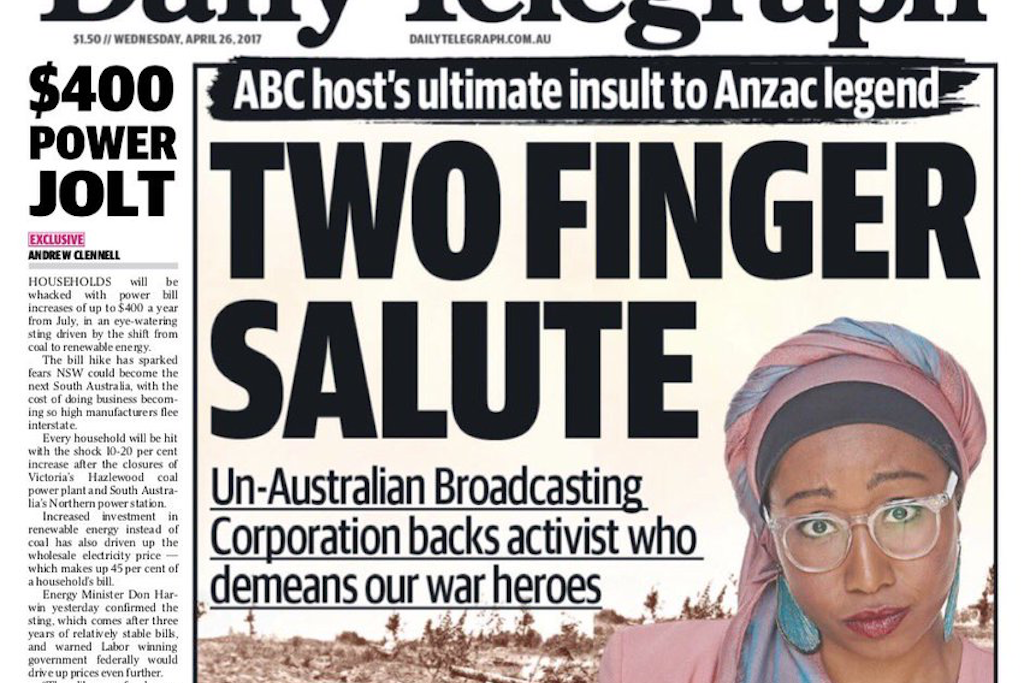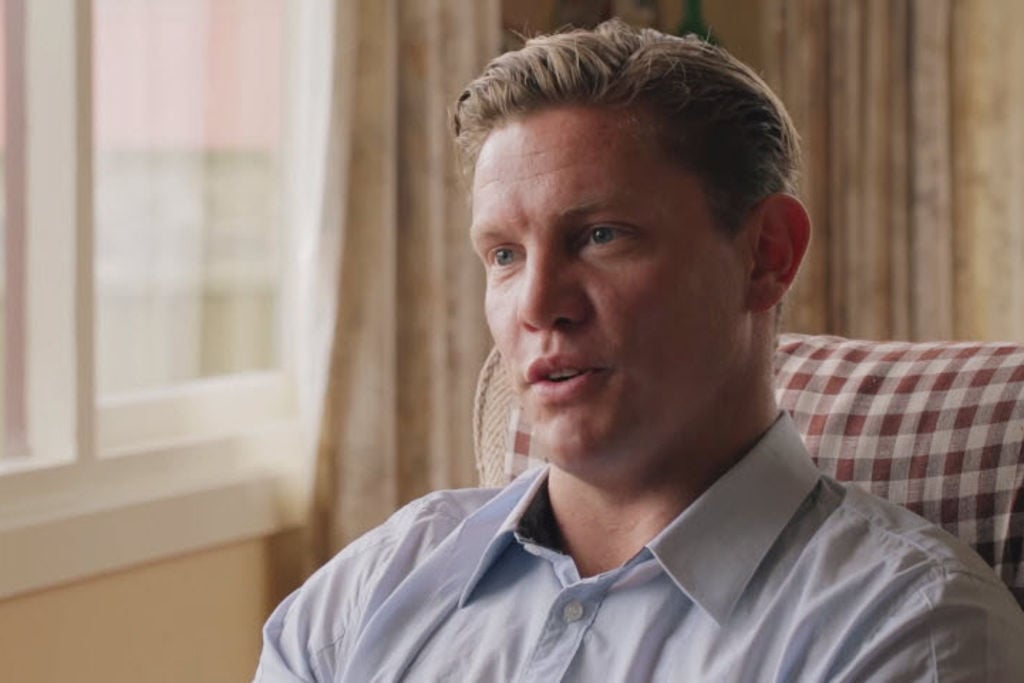Not Getting Political On Anzac Day? That Misses The Whole Point
"Offering a critique of the narrow way we choose to commemorate Anzac Day actually enriches the mythology we hold so dear. It makes it more real."

It’s April 26, the day after a national public holiday, which I guess means we’re about due for another enormous debate about Australian Values™. Yesterday, as I’m sure you’ve heard by now, ABC presenter, engineer and author Yassmin Abdel-Magied posted on Facebook about Anzac Day. “LEST. WE. FORGET.”, she wrote, followed by “(Manus, Nauru, Syria, Palestine…)”.
She was then met with offence and outrage, which prompted her to apologise, delete the post and replace it with a simple “Lest We Forget”. Senators, MPs, federal ministers and our acting PM have since condemned the post and asked for further action against her. Her face is on the front page of The Daily Telegraph.
Whether or not you feel that Abdel-Magied’s statement was disrespectful, there is no doubt that a certain type of ire (usually bookended by cries of “UnAustrayan!”) comes out when the nationalistic script is questioned in this way. This is something we see every year on Australia Day — a controversial public holiday that many (this reporter included) feel disrespectfully celebrates the invasion and subsequent genocide and continued subjugation of Australia’s First Peoples.
Anzac Day is not another Australia Day. It is not, as popular thought sometimes suggests, a day for national pride and jingoistic affirmations of “Aussie Values” (thanks Malc). People do not wake up in the dark and travel to The Shrine of Remembrance or Bondi Beachor Gallipoli or Villers-Bretonneux to drape themselves in an Australian flag and chant “Aussie, Aussie, Aussie, Oi, Oi, Oi!” as dawn breaks. (Though perhaps the bizarre practice of a football match played in Melbourne to mark the occasion has you confused — I’ll get to that.) Returned servicemen and women, who this year were led for the first time by Aboriginal war veterans, do not march so you can get smashed at your mate’s BBQ while you watch the AFL.
Anzac Day is a day for solemn observance, reflection and commemoration of those men and women who are deployed to wars to fight and die. And, considering how often those men and women are sent to die under less-than-reputable circumstances, that reflection must include discourse on the reasons we go to war and what exactly that means.
For goodness sake, we commemorate Anzac Day on April 25. This is the date that marks the Anzacs landing at Gallipoli — a harsh strip of unforgiving beach flanked by punishing rocks where unnumbered men died a cruel death in appalling conditions, fighting a regretful campaign that was doomed to fail. The First World War wiped out a generation of young men; those who returned did so traumatised, injured and scarred for life. Commemoration of our fallen and returned service people does not happen in a vacuum; our military is still deployed overseas, and Australia is still engaged in conflict — some of it ugly.
If this is the day we chose to observe our servicemen and women, that observance just has to include conversation around why we still choose to go to war.
“What We Choose To Remember”
It’s true that Anzac Day is not like Australia Day, but the Anzac myth is not unvarnished.
In an exquisite piece for ABC Online, Stan Grant tells the story of his family legacy with the Anzac soliders. His ancestor, Ivan Grant, was one of many Aboriginal soldiers who fought and died in WWI but went unrecognised. His grandfather, Cecil Grant, was a Rat of Tobruk in WWII, leaving his family on an Aboriginal mission in western New South Wales to enlist. Grant returned a hero, yet continued to fight for the kind of recognition and respect afforded to our white Anzacss in the mid-twentieth century. It took him years of barracking to receive the benefit of a soldier’s land settlement, which was his right as a returned serviceman.
Grant’s piece, which eloquently observes the importance of Anzac Day, while offering a critique about “what we choose to remember” when we repeat the words “Lest We Forget”, is a fine example of a balanced discourse around Australia’s Anzac mythology. Of course we can commemorate our past and currently serving military and the sacrifices they made for their country — for, as Grant puts it “loyalty, patriotism and adventure” — while still noting that Australia struggles (and often refuses) to adequately recognise the Indigenous people who contribute so much to a society that once sought to eradicate them. Of course we can reflect in ways that are both commemorative and critical.
“People are seeing stories of Indigenous servicemen they are quickly going ‘oh we didn’t know’.” https://t.co/toD1KxMmEX
— NITV (@NITV) April 25, 2017
Many Indigenous people’s first experience with European combat was fighting off British invading armies in the Frontier Wars (or, as the newspapers of the day recorded them, “exterminating war[s]”). Still, the descendants of those men signed up to fight in WWI and support a country that would then discredit their contributions. They fought for a national identity that was loathed to include them.
This year, for the first time, Aboriginal war veterans led the Anzac Day parade march. This gesture (rather belatedly) honours the extraordinary sacrifice that Aboriginal service people have made to a country that routinely subjugates them and has sought to erase their existence. Indigenous veterans leading the march is a wonderful commemoration, but it, like the rest of the nation’s actions on the day, cannot stand isolated in deference to a valorised mythology of “Australia”. We must recognise the chequered history of Indigenous Anzac recognition in order to pay these veterans a proper tribute.
These debates do not have to devalue the respect we have for our veterans and serving military. Offering a critique of the narrow way in which we choose to commemorate Anzac Day actually enriches the mythology we hold so dear, by making it real. Commemoration is more than just narrow and tokenistic celebration.
The History Wars
When I was in Year Nine, we studied WWI — particularly the Gallipoli campaign. In early-2000s NSW, Years Nine and Ten were when you covered (however marginally) “Australian History”.
We learned about the Anzac story and Australia’s “Baptism of Fire”. We learned a little about the harsh conditions at Gallipoli (which was merely a gesture toward what is now commonly thought among war historians to be a fruitless and exceedingly cruel conflict). We watched Peter Weir’s 1981 film Gallipoli, starring Mel Gibson and Mark Lee, and many in the class cried during its iconic ending. Lee’s Archy climbs over the trench and makes a play for the other side, only to be gunned down just before he reaches safety. It’s a shocking moment to watch, but it completed my limited understanding of Australia’s involvement in conflicts both locally and overseas. From then on, I chose to pin my understanding of Anzac Day to that filmed moment of actor Mark Lee being shot in a staged No Man’s Land.
Later, I learned that I had family involved in war. My grandfather, Hubert Dixon, whom my cousins called Pop (he died before I was born) was an RAAF minister in New Guinea during WWII from February 1943 until the end of the war. My great-great uncles Gordon and Carr Frazer were WWI servicemen. Gordon fought in Gallipoli and France, where he was eventually killed (when he returned to combat after recovering injuries) on 18 August 1916 at Pozieres during the Battle of Somme. Carr was deployed from September 1916 – January 1917, when he returned to Australia after being gassed.
This history is important to my family. My mother and her three sisters travelled last year to Mouquet Farm in Pozieres, exactly 100 years later, to visit the site where their Great Uncle Gordon was likely buried by his Anzac mates.

Photo: Matilda Dixon-Smith.
But, despite my family’s well-recorded history, my understanding of Anzacs and Australia’s involvement in war remained largely tokenistic. It wasn’t until I did further reading at an old editorial job — specifically WWI stories compiled by two Monash University historians — that I understood the true toll of war (especially those earlier and grandly observed wars) on Australian vets. I read the story of a man who was gassed in France and returned to Australia to live a life of agony in a repatriation hospital. I cried at my desk as I read about a soldier who returned from war to marry a girl he met before he served; on the morning of their wedding, he walked to St Kilda Park and hanged himself.
War is not nice — not for those fighting and not for the civilians caught in the crossfire or those left at home. As I read this book and my understanding deepened, I became horrified that our knowledge and commemoration of Australian service people feels so flimsy. How many of us know what Anzac day is really for? How many of us truly understand the sacrifices people make when they are deployed to war (and the horrific things they must sometimes do when they are fighting)?
Now, when I observe Anzac Day, I think of my Uncle Gordon, and my Pop, and the 100 stories of despair and sacrifice I read. I think of how awful war is, and how I am sad that men my family loved, and other people whose families loved them, have died in horrific ways because of war. As I observe Anzac Day, I do not celebrate war, I do not feel proud to be Australian because people I remember died under the name Anzac; I observe their passing and reflect on whether they had to die the way they did.
“What could be more political than a day observing those who died in military conflicts overseas?”
So, as I settled in at my mates’ house to watch the Anzac Day AFL match yesterday, I felt an uncomfortable squirm in my stomach when I saw the words “Lest We Forget” emblazoned across the field. Is a footy match really the way we want to commemorate our past (and current) involvement in conflicts all around the world? What does the “epic” rivalry between Collingwood and Essendon, and Bruce McAveny’s pervy commentary, have to do with the Anzacs anyway?
I had this in mind when I noted the attacks on Yassmin Abdel-Magied too. My worry wasn’t that she had disrespected the Anzac spirit; it was how little us average Australians really understand about Anzac Day and what it is for. Some of the critiques of Abdel-Magied’s post have merit, but many are deeply flawed and downright absurd. The Australian’s coverage accused Abdel-Magied of “politicising” the national holiday; but what could be more political than a day observing those who died in military conflicts overseas? Is that not, by its very nature, political? Doesn’t Abdel-Magied, an Australian citizen, have the right to observe the day in her own way, by reflecting on the way we choose to extend the Anzac legacy today?
Remembering The Past (And Learning From It)
There is a famous saying in philosophical (and now historical) discourse: “Those who cannot remember the past are condemned to repeat it.” The phrase is pithy enough to have become a cliché now, but it still holds true. Our observance of Anzac Day cannot exist in the contemporary without reflecting with a critical eye on the past (and the present). It just can’t. Personally, I feel there’s nothing more disrespectful than ignoring the sacrifices of our past servicemen in blind tribute to the current neo-nationalistic “fight for freedom”.
Deciding to deploy our military overseas is a serious decision, and if history has taught us anything, it’s that sometimes we make that choice in error. Those with enough historical knowledge (or first-hand experience) to remember the Vietnam War will understand that. Back then, our “Anzac pride” meant Vietnamese refugees who sought sanctuary in Australia from the very thing we were reportedly fighting against were ostracised and attacked by Australians who viewed them as “other”, or “the enemy” — all in the name of patriotism.
That kind of misguided attitude is not what Australian military service people join up to fight for. An intelligent young Australian woman engaging in debate about the meaning and value of war on Anzac Day is not a crime against our Australian values and mythology — if anything, it’s in service of it. If we do not properly observe Anzac Day (which includes a nuanced understanding of the horrors our veteran ancestors faced), what’s the bloody point?
People who don’t understand what Anzac Day is about, who want to use an overblown uproar to target a critical thinker (who has been specifically targeted through the lens of her race and religion) are not attacking in service of the Anzac legend or “Australian Values” — well, not mine, at least. To be honest, we do these misguided people a disservice by the poor job we do of teaching each other our own history (even the uncomfortable bits). Instead of threatening a young woman online, these detractors might be better off cracking a history book and learning the real meaning of Anzac Day.
–
Feature image: Royal New Zealand Navy, Flickr CC.
–
Matilda Dixon-Smith is a freelance writer, editor and theatre-maker, and a card-carrying feminist. You can find more of her ramblings about women and the arts on her website. She also tweets intermittently and with very little skill from @mdixonsmith.

